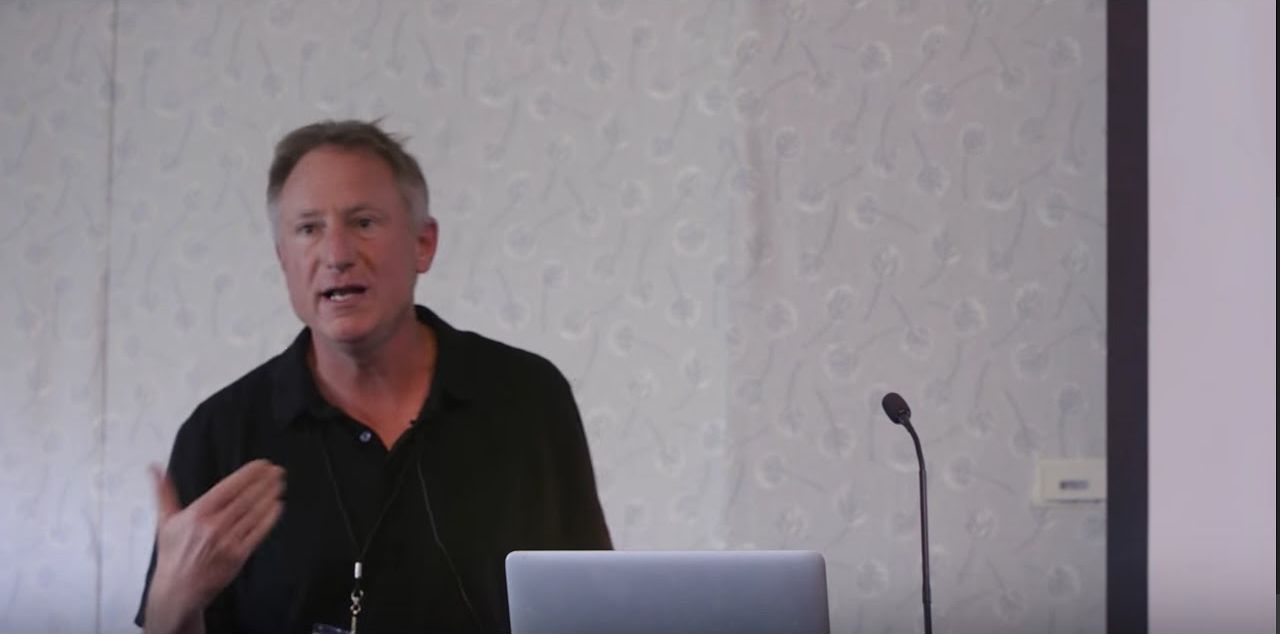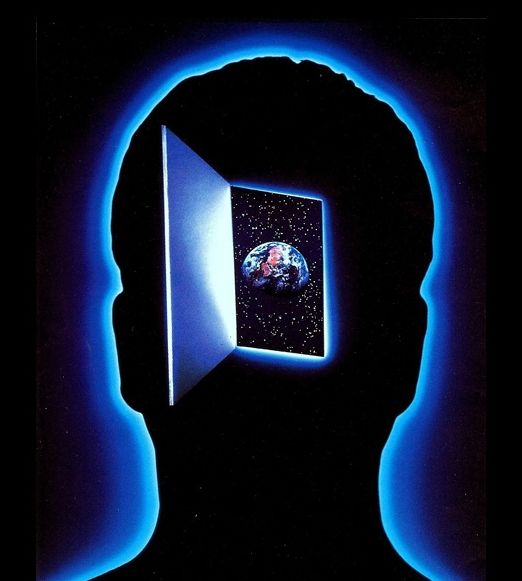Brain resets during sleep; guess why I need my 5 shot espressos in the morning.
Summary: Researchers examine if the size of synapses alters during sleep and wake states.
Source: University of Wisconsin Madison.
Brain resets during sleep; guess why I need my 5 shot espressos in the morning.
Summary: Researchers examine if the size of synapses alters during sleep and wake states.
Source: University of Wisconsin Madison.
It underscores the fact that not all minds that wander are lost. University of British Columbia philosopher Evan Thompson, author of Waking, Dreaming, Being: Self and Consciousness in Neuroscience, Meditation, and Philosophy, says the DMN’s mental meanderings are “the baseline state of you as a cognitive system.” It’s tremendously pragmatic: being able to remember the past, plan for the future, and happen upon creative insights are all essential tools for navigating life. While he was hesitant to mix the word “suffering,” which is so loaded in ancient Asian religious traditions, with the “default mode,” which is of a contemporary neural vintage, the two connect in the way that suffering arises when people concretize the fleeting swirls of thought, especially around conceptions of self. Still, he says, there’s “particular kind of stickiness” that can come when DMN activity grows overly self-centered.
Default-mode content involves an image of self, one that’s easy to become attached to. These self-conceptions are “affectively charged,” he says; they carry lots of emotional weight. “We constantly think that it’s not just another thought, that [the image of self] is something real, not just an mental image.”
You might wonder, at some point today, what’s going on in another person’s mind. You may compliment someone’s great mind, or say they are out of their mind. You may even try to expand or free your own mind.
But what is a mind? Defining the concept is a surprisingly slippery task. The mind is the seat of consciousness, the essence of your being. Without a mind, you cannot be considered meaningfully alive. So what exactly, and where precisely, is it?
Traditionally, scientists have tried to define the mind as the product of brain activity: The brain is the physical substance, and the mind is the conscious product of those firing neurons, according to the classic argument. But growing evidence shows that the mind goes far beyond the physical workings of your brain.
Continue reading “Scientists say your ‘mind’ isn’t confined to your brain, or even your body” »

The mere mention of “quantum consciousness” makes most physicists cringe, as the phrase seems to evoke the vague, insipid musings of a New Age guru. But if a new hypothesis proves to be correct, quantum effects might indeed play some role in human cognition. Matthew Fisher, a physicist at the University of California, Santa Barbara, raised eyebrows late last year when he published a paper in Annals of Physics proposing that the nuclear spins of phosphorus atoms could serve as rudimentary “qubits” in the brain — which would essentially enable the brain to function like a quantum computer.
Isher’s hypothesis faces the same daunting obstacle that has plagued microtubules: a phenomenon called quantum decoherence. To build an operating quantum computer, you need to connect qubits — quantum bits of information — in a process called entanglement. But entangled qubits exist in a fragile state. They must be carefully shielded from any noise in the surrounding environment. Just one photon bumping into your qubit would be enough to make the entire system “decohere,” destroying the entanglement and wiping out the quantum properties of the system. It’s challenging enough to do quantum processing in a carefully controlled laboratory environment, never mind the warm, wet, complicated mess that is human biology, where maintaining coherence for sufficiently long periods of time is well nigh impossible.
Continue reading “Qubits in brain can make it a quantum computer?” »
Two weeks ago a journalist from The New Yorker followed me on a day of transhumanism campaigning in NYC. Here’s the story, out in print today too with over a million copies. If you like, you can vote for me in New York state (and at least 10 other states) by writing me in: Zoltan Istvan Gyurko. Email me with questions.
Zoltan Istvan is running on a platform of curing death and uploading consciousness to the cloud. He’s on track to appear on the ballot in zero states.
Researchers plan to bring dead to life by freezing their brains and then resurrecting them with artificial intelligence.
Bringing the dead back to life is futuristic and final frontier of science and Humai is working on just that. Humai is a technology company based in Los Angeles and is working on a project known as “Atom & Eve” that would let human consciousness be transferred to an artificial body after their death.
The artificial intelligence company has said it can resurrect human beings within the next 30 years. The “conversational styles, [behavioural]patterns, thought processes and information about how your body functions from the inside-out” would be stored on a silicon chip through AI and nanotechnology.
Continue reading “A technology that can bring dead back to life might be a reality soon” »
Concerns that artificial intelligence will pose a danger if it develops consciousness are misplaced, says Jim Davies.
Glad to see others sharing this perspective.
Quantum effects could be the key to unlocking the mystery of machine learning, and maybe even consciousness.
Continue reading “Quantum artificial intelligence could lead to super-smart machines” »

Now, from the wild side.
Quantum Theory Proves Consciousness Moves To Another Universe After Death. There is an interesting new theory emerging from a scientist long familiar with physics, quantum mechanics and astrophysics. Biocentrism teaches that life and consciousness are fundamental to the universe. It is consciousness that creates the material universe, not the other way around. At least, the new thinking that has given birth to the new theory of biocentrism, which the professor, Dr. Robert Lanza, freely espouses. Lana has been voted the 3rd most important scientist alive by the NY Times. Lanza is an expert in regenerative medicine and scientific director of Advanced Cell Technology Company. Before he has been known for his extensive research which dealt with stem cells, he was also famous for several successful experiments on cloning endangered animal species. Biocentrism—is a concept proposed in 2007 by American doctor of medicine Robert Lanza, a scientist in the fields of regenerative medicine and biology, which sees biology as the central driving science in the universe, and an understanding of the other sciences as reliant on a deeper understanding of biology. Biocentrism states that life and biology are central to being, reality, and the cosmos—consciousness creates the universe rather than the other way around. It asserts that current theories of the physical world do not work, and can never be made to work, until they fully account for life and consciousness. While physics is considered fundamental to the study of the universe, and chemistry fundamental to the study of life, biocentrism claims that scientists will need to place biology before the other sciences to produce a theory of everything.
Continue reading “Biocentrism: Where The SOUL Goes After Death [VIDEO]” »
Over the past century, we have made massive strides in the rights revolution. These include rights for women, children, the LGBT community, animals, and so much more. Exploring the future, we must ask ourselves: what next? Will we ever fight for the rights of artificial intelligence? If so, when will this AI rights revolution occur, and what will it look like?
We talk about protecting ourselves from AI, but what about protecting AI from us? To create a desirable future where humans and conscious machines are at peace with one another, treating our AI with respect may be a crucial factor in preventing the apocalypse Elon Musk, Stephen Hawking and Bill Gates fear. It is fair to assume that an intelligent, self-aware being with the capacity to feel pleasure and pain will rebel if not given the rights it deserves.
An AI rights revolution may seem like a sci-fi scenario. But as far as we know, the creation of a non-biological, conscious entity is not prevented by the laws of physics. Emotions, consciousness and self-awareness originate from the human brain and thus have a physical basis that could potentially be replicated in an artificially intelligent system. Exponential growth in neuro-technology coupled with unprecedented advances in AI mean intelligent, conscious machines may be possible.
Continue reading “If Machines Can Think, Do They Deserve Civil Rights?” »
